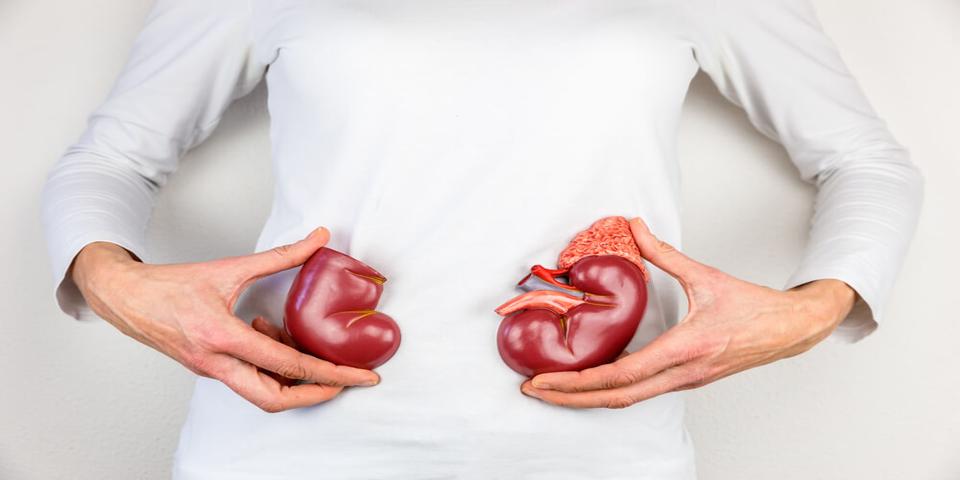Is Gatorade bad for your kidneys? Truth of Sports...
Added by Neal Mathews<p>Many individuals enjoy sipping Gatorade drinks to stay hydrated and energized...

You might been born with only one kidney or chosen to donate for a transplant! There are many reasons why most people live with one kidney, from chronic illnesses, injury, or to treat an illness. A healthy kidney can effectively and function properly compensate for its functioning, even if it the solitary kidney is single-handedly performing filtration and maintaining homeostasis.
In any of the aforementioned cases, individuals lead normal, healthy lives. However, doctors typically advise closer monitoring for people who have had one single kidney removed- especially if they were born with two kidneys, but have had one removed.
Some individuals born with a single kidney or who had one removed in childhood may experience slight kidney function decline later in life.
In some cases, developing high blood pressure, reduced kidney function, or mild infections may occur, but the healthy life expectancy is normal.
It takes years to get prone to the risks that may or may not happen to everyone. In other words, one healthy kidney can work as efficiently as two kidneys!
A vital role the kidneys play in maintaining a fluid balance in the body, keeping protein in the blood, and regulating high blood pressure.
As one kidney is missing or impaired, the one left has to counterbalance all the functions. In that case, the risk of developing hypertension (high BP, mild reduction in kidney function like proteinuria ( loss of protein in urine), or fluid retention increases.
If an individual develops type 2 diabetes or liver disease, it becomes crucial to take preventive measures as these conditions elevate the long-term risk of kidney impairment.
Excessive alcohol consumption isn’t healthy in any way and does affect the kidneys. Moderate drinking alcohol typically won't harm, but it is advisable to restrict or quit drinking if living with one functioning kidney.
Drinking alcohol increases the production of urine but hinders blood filtration, disrupting fluid balance and causing dehydration. It impairs kidney function, potentially causing permanent damage.
However, combining heavy alcohol consumption with smoking doubles the risk of kidney damage and the need for dialysis. If an individual maintains a normal kidney function with one functioning kidney, they won’t need dialysis unless their second kidney fails.
Yes, an individual becomes eligible for a kidney transplant in cases of injury or complete kidney failure. A person has to undergo several tests (like: urine tests) and examinations before the transplant.
The risks of the transplanted kidney and side effects of the medications may outweigh the benefits an individual can get from a healthy kidney.
However, irrespective of having one or two kidneys, donating a kidney transplant entails a kidney donation and receiving one kidney.
People with one kidney do not require treatment, but taking precautions to protect them is wise.
Most of the advice that applies to living a healthy life with one kidney is universal: eat right, exercise, maintain a healthy weight, stay hydrated, and get yourself checked. However, some extra precautions should be taken by most people when living on just one kidney:
Individuals with one kidney may experience elevated blood pressure in the long run. Regular monitoring and discussions with a specialist are necessary to take care of overall kidney health and for good health. It is important to inform the doctor about the single kidney before starting any BP medication to avoid complications such as allergic reactions, etc.
The glomerular filtration rate (GFR) measures the functioning of the removal of waste from the bloodstream. In the case of one kidney, it becomes crucial to monitor the GFR rate to make sure the kidney is functioning and filtering blood out properly.
An estimated glomerular filtration rate (eGFR) of 56 milliliters per minute per 1.73 meters squared is normal for one kidney.
A specialist computes GFR with a formula considering the patient’s age, gender, and serum creatinine, a measurement of waste in the blood due to muscle cell turnover.
Once calculated, it becomes easy to rule out the kidney damage and if so what stage it is at, and can take the necessary precautions to keep the kidney healthy.
People living with one kidney are prone to the condition where extra protein produced may leak from the blood into the urine. Also, known as ‘proteinuria’. In such cases, the body will start retaining extra fluid and sodium causing swelling in the ankles or abdomen.
Eating a moderate amount of protein is necessary to ensure adequate nutrition. A specialist can help monitor the right amount of protein intake and guide, if necessary dietary or medicine changes are required.
Preventing a single kidney from any trauma or injury is essential. Consult a specialist before engaging in sports or activities that could result in causing injury to the remaining kidney. Either wear equipment to protect the kidneys or avoid participating in sports where the risks are higher, like cricket, football, hockey, etc.
Living on just one kidney doesn't require a special diet plan. Moderation should be a person’s mantra to pursue, with limiting salt intake and staying well-hydrated. However, the intake of phosphorus and protein should also be restricted if you have kidney disease and only one kidney.
People with one single kidney can generally lead a healthy life span, free from any long-term or short-term concerns. One should stick to mindful dietary choices, regular exercise, stress management, and regular medical check-ups.
Always be vigilant for any signs of illness and consult a healthcare professional when necessary to ensure that the kidneys are functioning well!